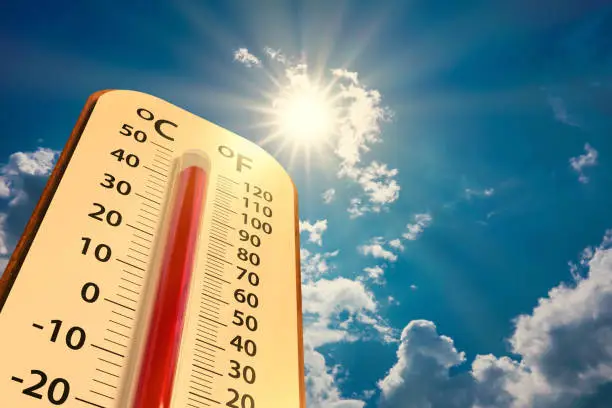
(East Texas) – Summer is over in about a month. Still, in Texas, one of the hottest summer seasons on record will leave its impact well into the fall, putting a renewed emphasis on taking the necessary precautions when working or playing outside.
“When outside, try and wear loose-fitting clothes, use plenty of sunscreen, and most of all, stay hydrated,” said Shelby Ivey, trauma program manager at CHRISTUS Mother Frances Hospital in Sulphur Springs and Winnsboro. “Even when the temps eventually drop, the threat of heat-related illnesses is real.”
Ivey added that it is essential to recognize the symptoms of heat exhaustion and heat stroke.
Excessive sweating, dizziness, cool or clammy skin, and muscle cramping are signs of heat exhaustion, while throbbing headaches, confusion, and a body temperature above 103 degrees indicate possible heat stroke.
“Heat exhaustion and heat stroke are essentially the same problems but on different ends of the spectrum,” Ivey said. “At the core, the body is trying to cool itself and prevent damage. When the body cannot cool itself, it becomes a medical emergency.”
CHRISTUS EMS responded to more than 100 heat-related calls during June and July.
The eventual drop in temperatures will be a welcome sign, but according to Ivey, the threat of heat exhaustion and heat stroke remains very real when the humidity remains high.
“Pay attention to the humidity when the temperatures drop. High humidity levels make it more difficult for sweat to evaporate and cool your body,” Ivey said. “Just because the air temperature may be falling, the humidity levels are significant to watch.”
Ivey added that special precautions should be taken for children and older adults, as they are more susceptible to heat-related illnesses. She also noted that specific prescription or illicit drugs can also increase risk.
People who are overweight, chronically ill, outdoor workers, and those who consume excessive alcohol should also take extra precautions.
“If you find yourself outside and you stop sweating, that is a time to be concerned,” Ivey said. “Taking frequent breaks, working during the early and late hours, and hydrating can help avoid any major issues.”
